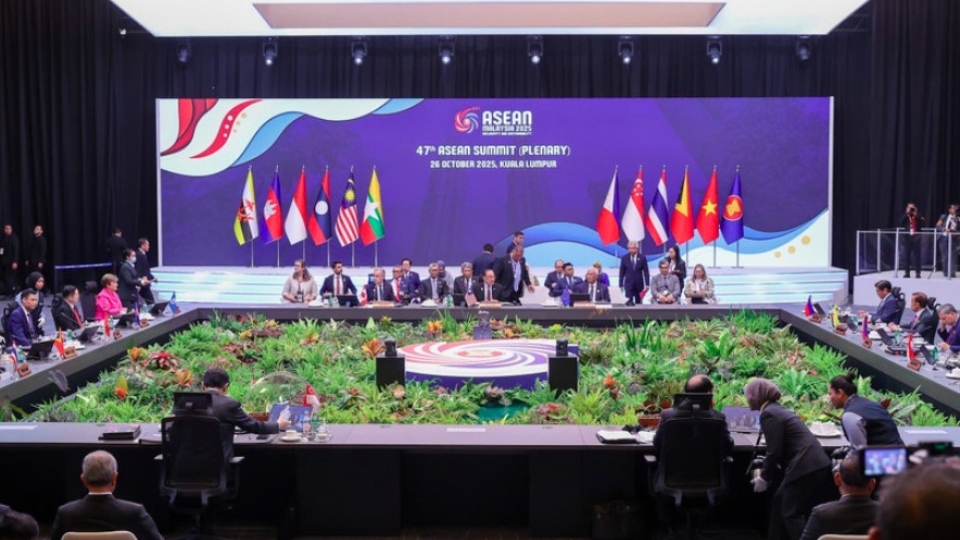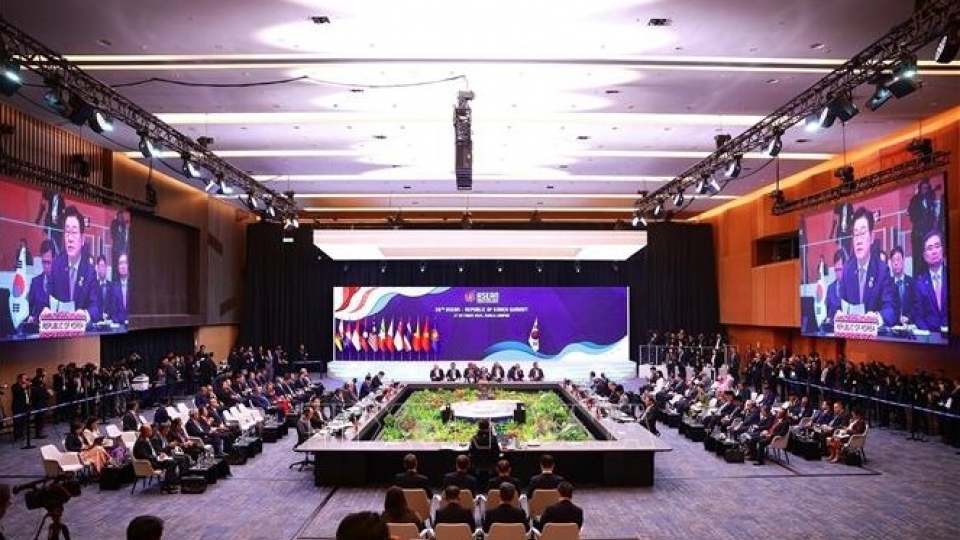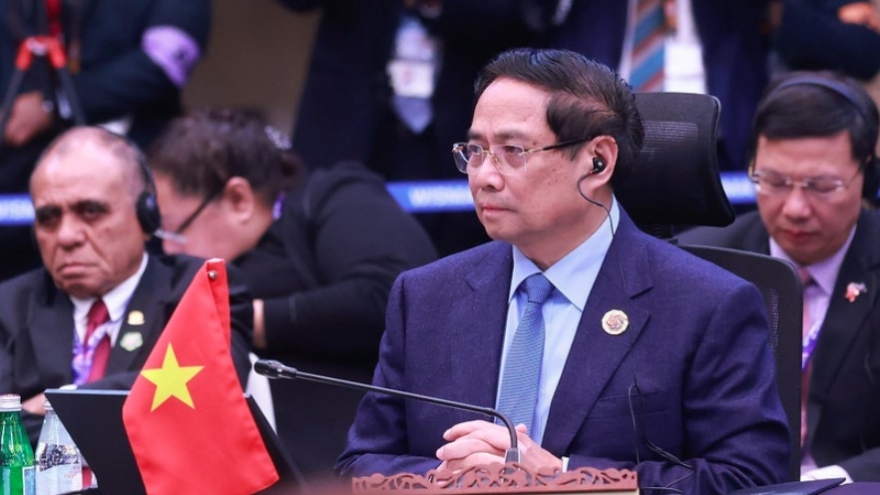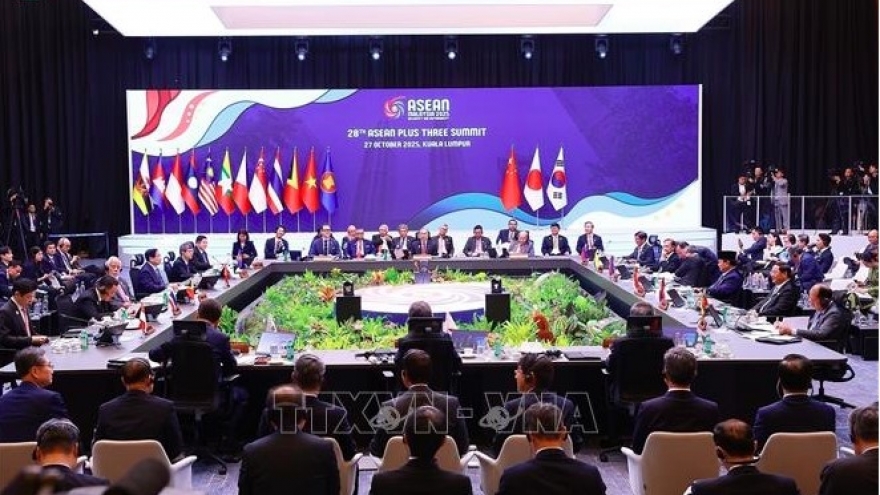Government chief proposes strategic directions for ASEAN-China relations
VOV.VN - Prime Minister Pham Minh Chinh has outlined three strategic directions to boost ASEAN-China relations, focusing on sustainable connectivity, high-tech cooperation, and peace and stability in the East Sea (internationally known as South China Sea).
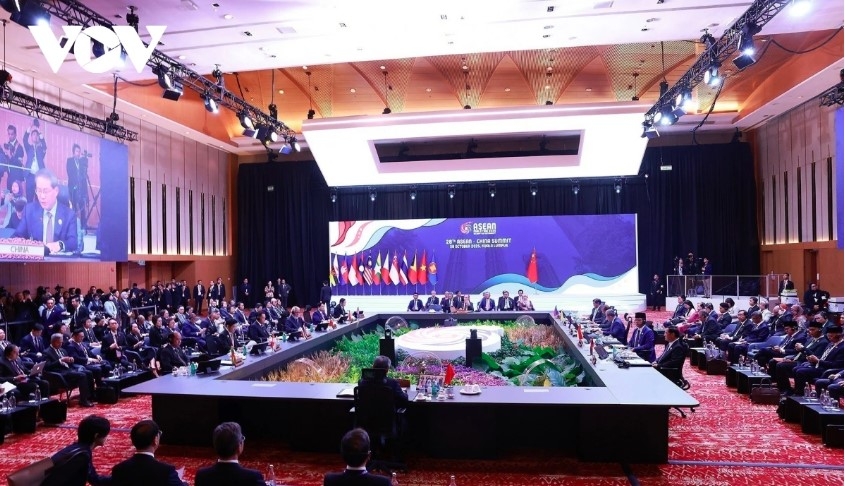
Continuing a broad array of activities of the 47th Association of Southeast Asian Nations (ASEAN) Summit and related meetings, Prime Minister Pham Minh Chinh attended the 28th ASEAN-China Summit on the morning of October 28 in Kuala Lumpur, Malaysia, alongside ASEAN leaders and Chinese Premier Li Qiang.
Prior to the summit, ASEAN and Chinese leaders witnessed the signing of a protocol upgrading the ASEAN-China Free Trade Agreement (ACFTA 3.0).
At the summit, leaders reaffirmed that the ASEAN-China Comprehensive Strategic Partnership remains a key pillar contributing to peace and stability in the region, and is also one of ASEAN’s most dynamic and comprehensive relationships.
ASEAN and China are each other’s top trading partners, with total bilateral trade reaching US$772.4 billion and Chinese foreign direct investment in ASEAN amounting to US$19.3 billion in 2024.
Leaders expressed their determination to further deepen bilateral ties and agreed to designate 2026 as “ASEAN-China Year,” marking the fifth anniversary of the Comprehensive Strategic Partnership with a string of meaningful celebratory activities.
Both sides emphasized the need to promote deep economic integration and maintain their roles as growth engines in the Asia-Pacific region, including the timely ratification and effective implementation of ACFTA 3.0 to lay the foundation for high-quality economic, trade, and investment linkages, as well as regional industrial and supply chain connectivity.
The summit recognized the achievements of the 2021-2025 Action Plan and called for the prompt implementation of the 2026-2030 Action Plan, agreeing to further boost new growth drivers such as digital transformation, innovation, science and technology, energy transition, green economy, startup ecosystem support, and enhanced infrastructure, institutional, business, and people-to-people connectivity.
Leaders reaffirmed the value of multilateralism in maintaining a peaceful, secure, and stable environment. They highlighted ASEAN and China’s shared interests and responsibilities in building a peaceful and stable East Sea to facilitate development cooperation, committing to continue dialogue, build trust, and peacefully resolve differences and disputes based on international law and the 1982 United Nations Convention on the Law of the Sea (UNCLOS), fully implement the Declaration on the Conduct of Parties in the East Sea (DOC), and strive for an effective, substantive, and internationally compliant Code of Conduct in the East Sea (COC).

In his remarks, Premier Li Qiang stressed the importance of further strengthening mutual strategic trust, stepping up cooperation in strategically beneficial areas, proposing the establishment of an ASEAN-China Digital Academy, and reinforcing people-to-people connections to enhance understanding and friendship.
Speaking at the summit, PM Pham Minh Chinh congratulated China on the 80th anniversary of the victory over fascism, noting it as a historic milestone that reminds the world of the devastating consequences of war and the enduring value of sustainable peace.
Guided by the principles that solidarity is strength, cooperation brings mutual benefits, and dialogue fosters understanding, PM Chinh proposed three strategic directions to further boost ASEAN-China relations.
First, he called for enhanced smart, inclusive, and sustainable connectivity, including effective implementation of ACFTA 3.0, development of modern, green, and sustainable ASEAN-China infrastructure networks, with a focus on high-speed rail, green seaports, energy-efficient airports, expanded smart border gates, digitized logistics processes, and streamlined immigration management to facilitate trade and people-to-people exchanges. He also emphasized strengthening connections between smart cities, sharing digital governance, artificial intelligence (AI) management, and renewable energy solutions in urban planning.

Second, he highlighted the importance of promoting innovation to drive new growth, supporting the creation of a closer ASEAN-China Science, Technology, and Innovation Action Program for 2026-2030, proposing the establishment of innovation networks, joint research institutes and laboratories, annual forums on green technology and digital transformation, training high-quality technology human resources, and intensifying people-to-people, youth, and cultural exchanges.
Third, PM Chinh underlined that consolidating strategic trust and maintaining regional peace and stability are prerequisites for inclusive and sustainable development. ASEAN and China should build the East Sea into a peaceful, stable, cooperative, and developmental maritime space, fully implement the DOC, achieve an effective and substantive COC in line with international law including UNCLOS 1982, while balancing the legitimate interests of all parties.


